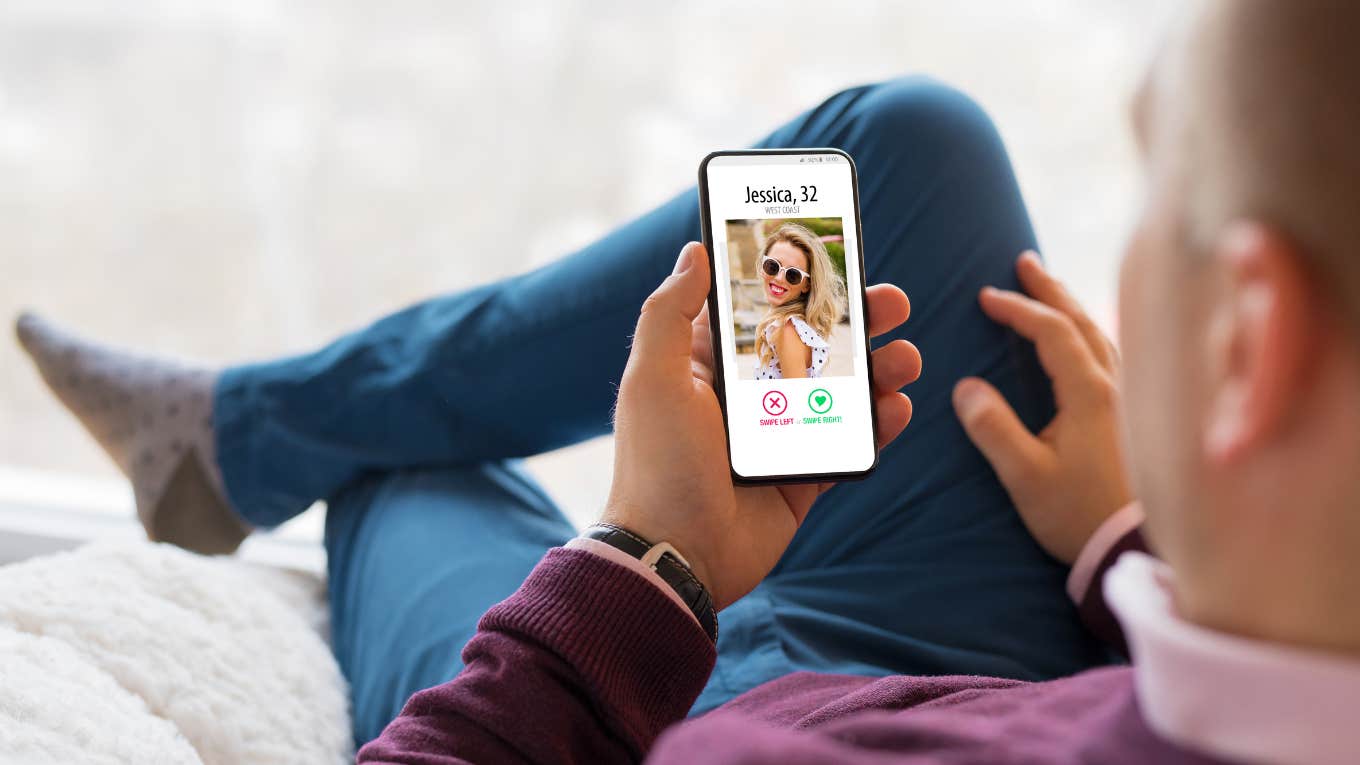A Lawsuit Claims Dating Apps Are Purposefully Addictive To Trap Lonely People In An 'Endless Swipe' Loop
Should dating apps come with a warning?
 Kaspars Grinvalds / Shutterstock
Kaspars Grinvalds / Shutterstock Thanks to simply swiping, the dating app industry was valued in 2022 at nearly $10 billion. But how many of those users actually looking for love found the companionship they desired — or worse, were guaranteed?
The apps Tinder, Hinge, and League, all owned by parent company Match Group, are being sued by six different people, claiming that these apps are scams for profit, and the corporations' motivations have everything to do with keeping users single and desperate.
The lawsuit alleges the dating apps use psychologically manipulative product features to keep users hooked.
The lawsuit, filed on Valentine’s Day in California Federal Court, claimed that the dating platforms are not used to find love but to scam users “into a perpetual pay-to-play loop," with no warning of their addictive designs.
Hinge markets their app with the slogan, “designed to be deleted," but the plaintiffs claimed it's doing the exact opposite.
Like most dating apps, they offer users a "free" sort of bare-bones service, while investing countless sums into research and development to help move those users into paid premium memberships under the guise of better matchmaking success.
Plaintiffs' lawyers alleged that Match Group apps, "[Harness] powerful technologies and hidden algorithms," to create "platforms with addictive, game-like design features... that prioritize corporate profits over its marketing promises." Further arguing that “The fact that the company does not disclose the 'purposely' addictive design of the platform to users violates consumer protection and other laws in various states.”
As it turns out, research has shown that meeting potential dates online is plausible, but building a sustained long-term relationship through online communication is much less likely.
Unsurprisingly, a spokesperson for Match Group adamantly denied the allegations, as reported by NPR, stating: "Our business model is not based on advertising or engagement metrics. We actively strive to get people on dates every day and off our apps. Anyone who states anything else doesn't understand the purpose and mission of our entire industry."
Many app users are praising the lawsuit for pointing out unethical practices they have noticed for years.
While the success stories of dating apps seem much louder than the failures, when news of the lawsuit made headlines, many users took to social media to speak out in support of the allegations and to share their own experiences.
TikToker Shani Silver has been vocal in her criticisms of the corporate greed motivating the world of online dating.
“Every time you redownload those dating apps, you’re horrified all over again,” Silver said. “Your person is not in there. They never have been.”
The day the lawsuit came out on social media, Silver posted a TikTok reaction to the news.
“They don’t want you to fall in love. They want your money,” Silver argued. “Dating apps have been destroying single people on purpose for profit, and this is the first time I’ve seen something done about it.”
At the end of the day, these companies need to make money to survive, and that's not really the crux of the problem. No one is denying they exist to incur a profit. The problem lies in how they go about earning that money. Much like a social media model, there is a psychological component that is being exploited to retain customers.
The simple act of swiping releases dopamine in the brain, causing the user to seek their next blast from the feel-good chemical. The dopamine surge keeps users on the platform and single but definitely not mingling.
This is essentially no different than spending hours doomscrolling social media.
Even if the lawsuit finds in favor of the apps, the flaws in the services provided have been brought to light.
Although many have found love on dating apps, that shouldn't absolve these tech companies from their duty to disclose that what worked for some will likely not work for all. Especially if their motives are to nefariously keep users single and subscribed to their services.
And while the buyer-beware concept should be in every consumer's mind, it's hard to ignore the blatant and flagrant marketing tactics these services employ. There is no guarantee to love, and there's certainly no guarantee to find love online.
Worst case scenario: nothing changes, but consumers are more mindful of the services they are using. Best case scenario: these apps and the countless others that will pop up in the future will be held to a higher standard, or at the very least be forced to carry a warning that lets users know of their addictive nature.
Lauren Reams is a writer at YourTango who covers entertainment and news.

